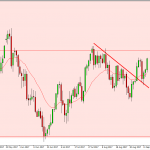Savers are getting strangled by regulations: new laws are threatening their assets and limiting their freedom. They have become prey to a sicker and sicker banking and monetary system. We have already warned about the BRRD directive, which authorizes a failing bank to bail itself out using its clients’ accounts, and mentioned in passing that the 100,000 euro guarantee was all but an illusion – same as the Sapin 2 law, which can freeze life insurance contracts. A new nail should be driven in the savers’ coffins, according to the very serious Reuters press agency: the freezing of bank accounts in order to avoid any bank run. Thus the savers will be totally immobilized, at the mercy of the next financial crisis, ready to be plucked like ducks.
Let’s be clear: for the time being, this is only a project – officially. Reuters just put out this document from the European Union Council, presided by Estonia since July first. The freezing should last five days – or up to 20 days in case of “exceptional circumstances” – and clients would still be allowed to withdraw a minimal sum… how gracious! The Estonian presidency wishes to come to an agreement with the Council before the end of its mandate, December 31. So the ball is already rolling and this may happen very quickly; it is certainly too late to stop it now.
Let’s see things from another perspective: this information leak is planned by the European Union, via Reuters, in order to test and accustom the people to a new setback of their rights, just like a vaccine inoculates a small dose of poison into the organism so it is ready when a larger dose hits. There have been no public reactions at all: no minister has denounced this infringement of the savers’ fundamental rights, no editorialist has reached out to the media outlets to condemn this scandal… no, the economists were talking about something else, like the “French economic recovery” (what a joke!). Anyhow, the fact that there has been no outcry after such a nefarious announcement obviously means the green light is on for the EU.













Leave A Comment